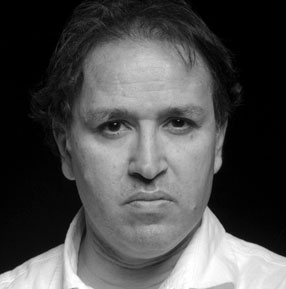Shikwah
—after Iqbal
Brother on the threshing floor, body like wheat,
and the red dirt that binds us, that nothing will release us
from. The fig tree, the date palm, the treacherous murder
unleashed into us now, the call blazing from vanity’s lungs,
jutting us to a future of mindless rain, wayward blizzards
of sand and snow. We were born to ward off this desolation
that grinds mountains into floss, bores into our books
for a whim that ordains blood, our blood
and others, our sisters, mothers. Without such fear
who will we be? What will we do without
this aching chord, without the bright morning that tore
the silver’s towers? Fire and the parched red dirt
that binds, the water stolen from our wells,
a black magic dredging the lower rungs of earth.
We dream of clover. The soft scent of young lambs
is the first letter of our alphabet, and the prophets
who tighten ropes around their waists to stifle hunger's
pangs, supplicant brows seeking light from earth’s core.
What will we do without the angel’s voice, a tide
sending us heavenward, a harmattan ushering us into the hell
of its lows. How can we live without such turbulent hope?
How can we accept the certainty of our quiet graves?
How can we stop waiting to witness the Lord’s face?
And what will we do without the hardened gaze?
The girls walk past, hair fluttering like commas
between poems of musk, a dream of touch like water
gently falling on smooth, warm stone.
What will we do without the anemones’ mournful dirge
stroking the dagger’s spine and the gelding’s nightmares.
Our hatred for our scoured hands, our love of the moment
when the sun drops only for our eyes? Who else will hear
birdsong as prayer, who will cleanse himself with the stroke
of sand? Who keeps the earth rotating with praise
of your name? And what will this spinning,
hurtling mean without our voices shouldering it
toward some ripe, sweetened pause?
What will you do, dear God, without us? How
will you fare, alone again in the empty vast, in the dark
of your creation, without us giving you your name?
Copyright © 2019 by Khaled Mattawa. Originally published in Poem-a-Day on August 20, 2019, by the Academy of American Poets.
“The title word is the Urdu for complaint (from the Arabic shakwa), and the title of a poem by the great Indian poet Muhammad Iqbal (1877-1938). A complaint to God, Iqbal’s poem bemoans the state of his people and the decline of their civilization. I first encountered Iqbal’s 'Shikwa' as an Arabic song by Oum Kalthoum, the great Egyptian singer, in a performance that still gives me chills today. Reading Iqbal's poem in English translation years later, I was drawn to its rhetorical mode, its drama and range of allusions and knew that eventually, I would write a poem inspired by it. The challenge was to create personal images and symbols while also speaking in a collective voice.”
—Khaled Mattawa

